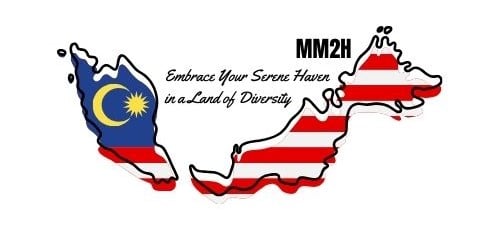Malaysia’s New MM2H Interest Drops by 90% Among Applicants!
Ever found yourself wondering why the Malaysia My Second Home (MM2H) program isn’t as bustling with applicants as it used to be? You’re definitely not alone. After examining the statistics and doing some serious research, I’ve uncovered quite a story.
It turns out that stricter regulations have led to a staggering 90% decrease in applications—a sharp contrast when you look over at Thailand and Indonesia’s more welcoming policies.
Get ready; we’re about to explore some truly eye-opening insights that might just change how you view this once-popular program.
Key Takeaways
- Malaysia’s MM2H program saw a huge drop of 90% in interest because the rules got tougher. Lim Lip Eng showed how strict the new conditions are.
- The program used to bring in RM58 billion over 17 years, but with new high costs like mandatory home buying and big bank deposits, fewer people want to join.
- Thailand and Indonesia have easier programs for people who want to live there. This makes them more attractive than Malaysia’s MM2H.
- To join MM2H now, you need a lot of money for bank deposits up to $1 million and you must invest in property that you can’t sell for ten years.
- Experts believe these tough rules could hurt Malaysia by turning away many who might contribute to its economy and community life.
The Impact of Strict Conditions on MM2H Applications

So, the MM2H program got tougher rules. Now, not as many people want to join. Nearby places are easier to get into, so folks go there instead.
New MM2H Interest Drops by 90% Among Applicants- said Kepong MP Lim Lip Eng
I heard that interest in Malaysia’s MM2H program dropped a lot. Lim Lip Eng said it went down by 90%. That’s huge! The old MM2H used to help Malaysia’s economy a lot. It brought in RM58 billion over 17 years.
Now, the new rules are tough. They don’t help much.
Economists think these strict rules won’t do much good. One rule makes people buy homes and keep them for many years. This doesn’t seem to attract more people like it was supposed to.
The focus on high-net-worth individuals with the introduction of mandatory property investments has greatly reduced the applicant pool.
Comparison with more flexible neighboring countries

So, we’re talking about Malaysia’s MM2H program today, and boy, has it seen a drop in interest. Why? Mostly because of the strict conditions that have been put in place. These rules have seen a 90% drop in applicants. That’s huge! Especially when you look at how flexible the previous scheme was. Now, folks have to cough up more money in bank deposits and even invest in mandatory property. And once you’ve bought a property, you’re stuck with it for at least 10 years.
Let’s break it down a bit, shall we? The MM2H now comes in three flavors: Platinum, with a $1 million fixed deposit; Gold, asking for a $500,000 fixed deposit; and Silver, with a $150,000 fixed deposit.
Now, how does this stack up against what our neighbors are offering? Let’s peek at the table below:
| Country | Program | Bank Deposit Requirement | Property Investment Requirement | Flexibility |
|---|---|---|---|---|
| Malaysia | MM2H | Up to US$1 million | Mandatory, with 10-year hold | Low |
| Thailand | Thai Elite Visa | N/A | Optional | High |
| Singapore | Global Investor Program | N/A | Required, but with options in business investment | Moderate |
As you can see, places like Thailand offer a much more relaxed approach with their Thai Elite Visa, not even needing a bank deposit. Singapore’s Global Investor Program does ask for investments, but they give a bit more choice in what that investment looks like.
So, why does this matter? Well, for folks looking to move under schemes like these, the choice is pretty clear. The flexibility and lower financial barriers of neighboring countries make them a lot more appealing. Malaysia’s MM2H, with its high demands, just isn’t as attractive as it used to be.
All in all, the changes to the MM2H program have made it a tough sell. With the stiff competition out there, it’s no wonder interest has taken such a nosedive. Folks are just looking for the best deal, and right now, that deal doesn’t seem to be in Malaysia.
Conclusion
The MM2H program in Malaysia has really taken a hit with a 90% drop in people interested. It’s clear that the new rules they set up are too tough for many. Places like Thailand and Indonesia offer easier ways to live there, making them more attractive.
Lim Lip Eng said we need to find a middle ground – make it appealing for wealthy folks but still easy enough for others to join. After all, if we keep things too strict, we might miss out on a lot of good the program can do for our economy and our communities.




